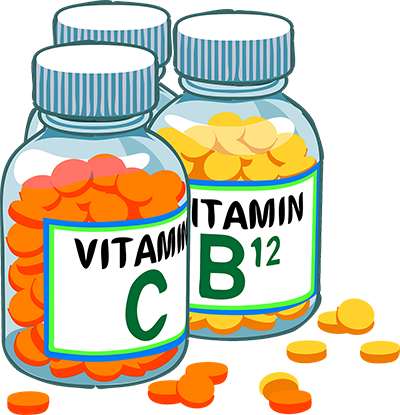- Have any questions? Contact us!
- info@dr-rath-foundation.org

Drug Industry Tries to Slip $4 Billion Windfall Into U.S. Opioid Bill
September 27, 2018
World Health Organization Revises Ebola Risk In Democratic Republic Of The Congo To ‘Very High’
October 3, 2018New Study Finds Vitamin-Rich Mediterranean Diet May Help Prevent Depression

New research suggests eating a vitamin-rich Mediterranean-style diet containing fruit, vegetables, nuts, and fish may help prevent depression. Published in the Molecular Psychiatry journal by researchers from the UK, France, Australia and Spain, the finding is based on the analysis of 41 separate studies published within the last eight years. To reduce the likelihood that factors other than diet may have influenced the researchers’ conclusions, the studies examined also took account of peoples’ age, sex, education, marital status, smoking habits, physical activity, body mass index (BMI), income, alcohol use, residential area, and other aspects known to influence the risk of depression. Overall, people following a Mediterranean-type diet were found to be 33 percent less likely to suffer from depression than those who weren’t. The finding provides further support for the use of nutritional approaches in the control of this common mental health problem.
Affecting more than 300 million people globally, depression is the leading cause of disability worldwide and a major contributor to the overall burden of disease. Reflecting this, the World Health Organization estimates that depression and anxiety disorders cost the global economy $1 trillion each year. Significantly, therefore, and as the authors of the Molecular Psychiatry study point out, conventional treatment for depression is effective in only one in three cases of mood disorder. Moreover, recent research suggests that depressed patients treated with antidepressants actually do worse in the long run. Published in 2017, an analysis found that symptoms of depression were more sharply elevated after 9 years of treatment that included drug medication compared to treatment without it. Not surprisingly, therefore, with growing evidence that a lack of essential nutrients contributes to the onset of poor mental health, enlightened researchers are increasingly looking to nutritional psychiatry as the future of mental health treatment.
Combatting depression with nutritional supplements

There is growing evidence that nutritional approaches are effective in the prevention and control of depression. Illustrating this, a meta-analysis published in 2016 looked at 13 studies involving 1,233 participants and found that supplementation with omega-3 fatty acids can help reduce symptoms of even major depressive disorder. A study published earlier this year added still further support to the use of omega-3 fatty acids for controlling depression, finding that higher levels of these nutrients are linked to less depression in heart failure patients.
Other research has found evidence linking a deficiency of B vitamins with depression. A scientific review published in 2017 noted that low levels of B vitamins are common in depression and that supplementation with these nutrients has been shown to improve depression outcomes.
Similarly, a clinical trial published in 2017 showed that magnesium supplements are effective in the treatment of mild-to-moderate depression. Finding that daily supplementation with magnesium leads to a significant decrease in depression and anxiety symptoms, and that it works quickly and is well tolerated, the study concluded that magnesium may be a safe over-the-counter alternative to antidepressant drugs.
Dangers of antidepressant drugs
Contrary to the pro-drug propaganda that is spread through the mainstream media, the fact is that conventional antidepressant treatments are far from safe. Illustrating this, an analysis of hundreds of thousands of patients published in 2017 found antidepressant drugs to be associated with a significantly elevated risk of death. Overall, people using the drugs had a 33 percent higher risk of death than those not using them. They also had an increased risk of suffering cardiovascular problems such as heart attacks and strokes.
 It has also been shown that patients on some types of antidepressants have a greater incidence of developing dementia. Examining the medical records of 40,770 patients over the age of 65 diagnosed with dementia and comparing them to 283,933 older people without the condition, researchers from the United States, UK and Ireland found a higher incidence of dementia among patients prescribed anticholinergic antidepressants, a class of drugs that block the neurotransmitter acetylcholine. This finding is hardly surprising, however, as acetylcholine is known to play key roles in learning and memory.
It has also been shown that patients on some types of antidepressants have a greater incidence of developing dementia. Examining the medical records of 40,770 patients over the age of 65 diagnosed with dementia and comparing them to 283,933 older people without the condition, researchers from the United States, UK and Ireland found a higher incidence of dementia among patients prescribed anticholinergic antidepressants, a class of drugs that block the neurotransmitter acetylcholine. This finding is hardly surprising, however, as acetylcholine is known to play key roles in learning and memory.
When taken during pregnancy, the risk posed by antidepressants extends not just to the mother but also to the baby as well. A study published earlier this year found that pregnant women taking antidepressant drugs increase their child’s risk of depression and anxiety.
Moreover, there is also disturbing evidence of a link between anti-depressant drugs and homicide. Echoing similar findings linking antidepressants with violence in countries such as the United States, a freedom of information request submitted by the BBC to the UK’s Medicines and Healthcare products Regulatory Agency found that, over the past three decades, 28 homicides committed in the country have been associated with people taking a class of antidepressants known as Selective Serotonin Reuptake Inhibitors (SSRIs). Separate research from Sweden published in 2015 corroborates the link between SSRIs and violence by finding that young adults between the ages of 15 and 24 are at a 43 percent increased risk of violent crime arrests and convictions when taking the drugs compared to when they aren’t. Crimes cited in the Swedish study included homicide, assault, robbery, arson, kidnapping, sexual offences, and others.
Feed your brain
 Predictably, whenever research is published demonstrating a link between nutrition and mental health, the skeptical opinions of so-called ‘experts’ are given prominent attention in the mainstream media. Advising that caution is needed, they are invariably keen to express doubts over the evidence. For those with more open minds, however, the logic supporting nutritional approaches to mental health problems is compelling.
Predictably, whenever research is published demonstrating a link between nutrition and mental health, the skeptical opinions of so-called ‘experts’ are given prominent attention in the mainstream media. Advising that caution is needed, they are invariably keen to express doubts over the evidence. For those with more open minds, however, the logic supporting nutritional approaches to mental health problems is compelling.
The underlying idea behind this area of research is essentially a simple one; namely that the brain needs to be nourished, just like all other organs of the body, and that its nutritional status is a key factor governing moods and behavior. Adding further support to this understanding, studies have already shown that nutritional supplements can improve the behavior of prisoners and reduce juvenile delinquency among schoolchildren.
With close to 10 percent of the world’s population now said to be affected by depression and/or anxiety, it is time to explore new therapeutic directions that do not involve putting ever higher numbers of patients on dangerous antidepressant drugs. In this respect, we might recall that the Greek physician Hippocrates (460-370 BC) is often quoted as having said ‘Let food be thy medicine, and medicine be thy food.’ Increasingly, it seems, science is revealing this principle to apply just as much to our mental health as it does our physical health.



